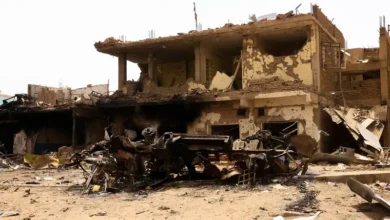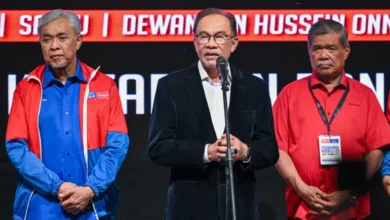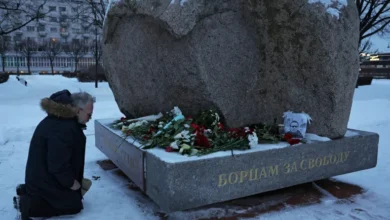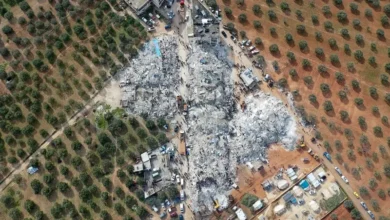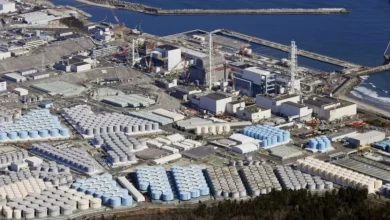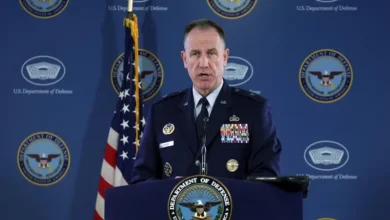Israel’s Netanyahu doubles down on opposition to Palestinian statehood
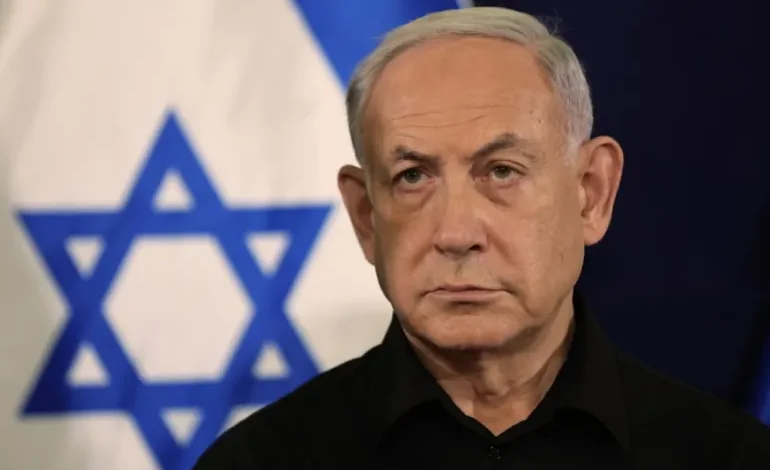
Israeli Prime Minister Benjamin Netanyahu has repeated his opposition to an independent Palestinian state, saying his country needed full security control over the Palestinian territories, rebuffing United States President Joe Biden’s stance on the issue.
“I will not compromise on full Israeli security control over the entire area in the west of Jordan – and this is contrary to a Palestinian state,” Netanyahu posted on X late on Saturday night, doubling down his opposition to a Palestinian state a day after speaking to the US president, who has offered unconditional support to Israel in its war on Gaza Strip, in a phone call.
Biden on Friday said he spoke with Netanyahu about possible solutions for the creation of an independent Palestinian state, suggesting one path could involve a non-militarised government.
Biden’s call with Netanyahu was the first in nearly a month, the White House said. Asked if a two-state solution was “impossible” while Netanyahu was in office, Biden said, “No, it’s not.”
But in a statement, the Israeli prime minister’s office said Netanyahu told Biden that “after Hamas is destroyed Israel must retain security control over Gaza to ensure that Gaza will no longer pose a threat to Israel, a requirement that contradicts the demand for Palestinian sovereignty”.
Netanyahu is under heat to appease members of his far-right ruling coalition by intensifying the war on the besieged Palestinian enclave, killing more than 165 people in the past 24 hours. Close to 25,000 Palestinians, most of them women and children, have been killed in relentless bombardment since October 7.
He expressed his opposition to any Palestinian state multiple times since launching the war on Gaza deferring to the Biden administration’s stance on the issue.
The UK said on Sunday that Netanyahu’s opposition to Palestinian sovereignty is “disappointing”.
“I think it’s disappointing actually, to hear that from the Israeli prime minister,” said Defence Secretary Grant Shapps on the Sky News channel.
Meanwhile, United Nations Secretary-General Antonio Guterres on Sunday said “the denial of the right to statehood for the Palestinian people” is “unacceptable”.
“The right of the Palestinian people to build their own state must be recognized by all,” he posted on X.
US-backed peace talks towards the so-called “two-state solution” that would see Israel existing side by side with a Palestinian state in Gaza, the occupied West Bank and East Jerusalem, collapsed a decade ago.
On Thursday, US State Department spokesperson Matthew Miller said there was no way to solve Israel’s long-term security challenges and the short-term challenges of rebuilding Gaza without the establishment of a Palestinian state.
Miller said Israel had an opportunity now as countries in the region were ready to give it security assurances.
‘Complete victory’
Netanyahu says Israel must fight until it achieves “complete victory” and Hamas no longer poses a threat but has not outlined how this will be accomplished. Hamas has been governing Gaza since 2007 when Israel imposed a land, sea and air blockade on the enclave of 2.3 million people.
But a member of Israel’s war cabinet, former army chief Gadi Eisenkot, has called a ceasefire the only way to secure the captives’ release, a comment that implied criticism of Israel’s current strategy.
Critics have accused Netanyahu of preventing a cabinet-level debate about a post-war scenario for Gaza. They say he is stalling to prevent conflict within his coalition. Netanyahu’s office called the claim that he was unnecessarily prolonging the war “utter nonsense”.
Israel launched its war on Gaza after the Hamas group’s unprecedented October 7 attacks that killed about 1,100 people, mostly civilians, in Israel and saw about 250 others taken captive.
In a sign of the pressures Netanyahu’s government faces at home, thousands of Israelis protested in Tel Aviv on Saturday, calling for new elections, and others demonstrated outside the prime minister’s house, joining families of the more than 100 remaining captives held by Hamas and other fighters.
They fear that Israel’s military activity further endangers captives’ lives.

